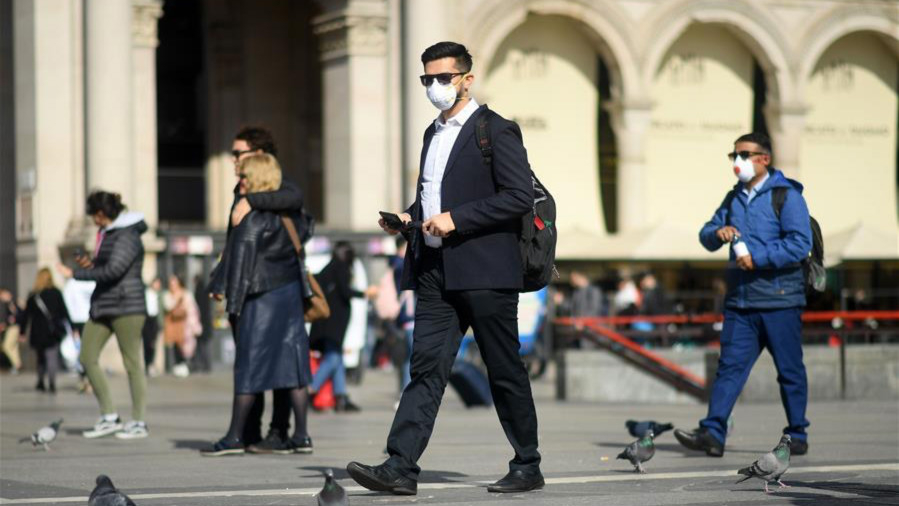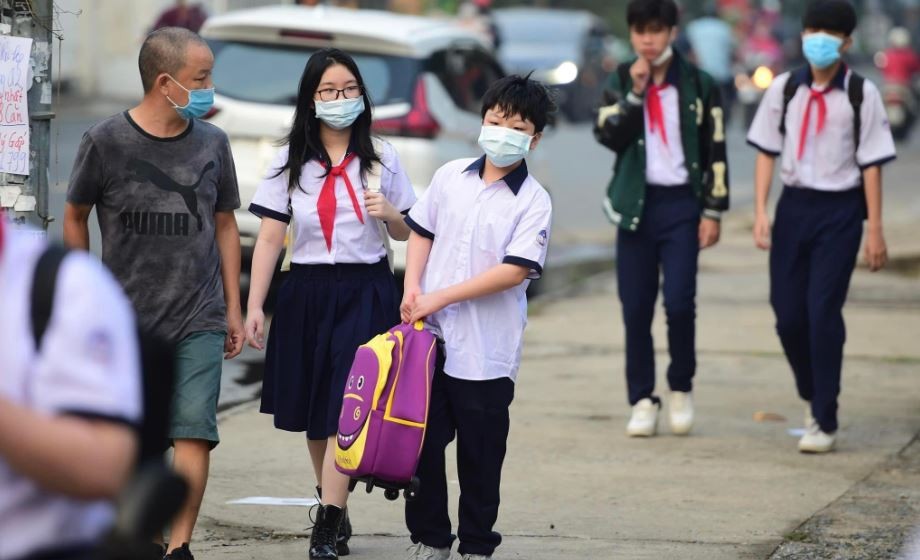COVID-19: Why is Italy the most affected country outside Asia?
 | Vietnam tourism gradually recovered from COVID-19 outbreak The outbreak of the COVID-19 has not only caused serious concerns but also negatively affected to the tourism of Vietnam. However, the situation is being ... |
 | France shuts dozens of schools in bid to contain coronavirus French officials have closed about 120 schools in areas that have reported the largest numbers of coronavirus infections, and more could be shuttered in the ... |
 | China witnesses the decline of COVID-19 As claimed by the Ministry of Health, until March 4 2020, China reached nearly 3.000 deaths and more than 80.000 people in the outbreak of ... |
 |
On January 31, when the Italian government announced the suspension of all direct flights to and from China amid the outbreak of COVID-19, Italy had only two cases of coronavirus. Today, a month after the suspension of direct flights with China, COVID-19 cases have surged dramatically, reaching up to more than 2,030 cases as of March 3.
What actually caused this massive outbreak in Italy? Why is Italy the most affected country outside the Asian continent?
As a signatory of the Schengen Agreement, Italy has no border control with most European countries. Banning direct China flights unilaterally was not a rational and well-thought-out choice and just caused serious troubles and anxieties for the thousands of Italian and Chinese passengers who had to return home.
Furthermore, even if Italy suspends all China flights, passengers departing from China can still choose to come through stopovers in third destinations. The problem is fundamentally not the flights from China nor people coming from China, but rather how Schengen area countries have not jointly implemented stricter health controls at international airports, if compared to what China did.
Moreover, there is no habit of wearing face masks in Italy even when you catch a cold and are sick. If a person wears a face mask on the street, he may be regarded as someone with cancer or having other serious health issues. Differently from many Asian societies where wearing a face mask is normal, this is rare in Italy.
The fact that there are so many cases of COVID-19 involving people who have never been to China or had contact with someone from China, means that COVID-19 could have been circulating in northern Italy for many weeks before it was detected because people simply thought they had a common cold.
These are two reasons to explain why Italy has become the most affected country outside Asia. At the current stage, if Italian politicians do not take immediate measures to curb COVID-19’s wide spread in the country and across Europe and beyond, the situation will only get worse. Some Italians have also started to blame and even harass physically and verbally the overseas Chinese communities in Italy.
Many days ago, Luca Zaia, governor of the Italian northwestern region of Veneto, said that COVID-19 was caused by Chinese people because they had bad hygiene and the cultural practices of eating live mice. Such fake and racist statements offend all Chinese people and cannot be forgiven.
Collective public security and social order are now crucially needed in Italy as well as in other nations. In a globalized world, we cannot think of suspending direct flights as a measure to fight global diseases. I truly hope Italy will implement effective and efficient policies to fight this invisible enemy through first of all learning from China’s sense of unity in situations of emergency like this one. I sincerely wish the overseas Chinese people in Italy and elsewhere will no longer be discriminated against just because they are Chinese. Forza Italia! Forza Cina!
Note: Alex Chan is a doctoral researcher in diplomacy at Peking University. He graduated in China studies from Peking University and international relations from the London School of Economics. The article reflects the author's opinions, and not necessarily the views of CGTN.
In topics
 Focus
Focus
Vietnam Covid-19 Updates (May 1): Daily Infections Fall to Nine-month Low of 5,109
 Focus
Focus
Vietnam Covid-19 Updates (April 29): 7,100 Cases, 79,000 Recoveries Reported
Recommended
 World
World
India strikes back at terrorists with Operation Sindoor
 World
World
India sending Holy Relics of Lord Buddha to Vietnam a special gesture, has generated tremendous spiritual faith: Kiren Rijiju
 World
World
Why the India-US Sonobuoy Co-Production Agreement Matters
 World
World
Vietnam’s 50-year Reunification Celebration Garners Argentine Press’s Attention
Popular article
 World
World
"Will continue offering our full support to Indian govt": US FBI Director after Pahalgam attack
 World
World
"Great Leader": JD Vance Lauds PM Modi During His India Visit
 World
World
Trump’s Tariff Pause: A Strategic Move from “The Art of the Deal”?
 World
World





